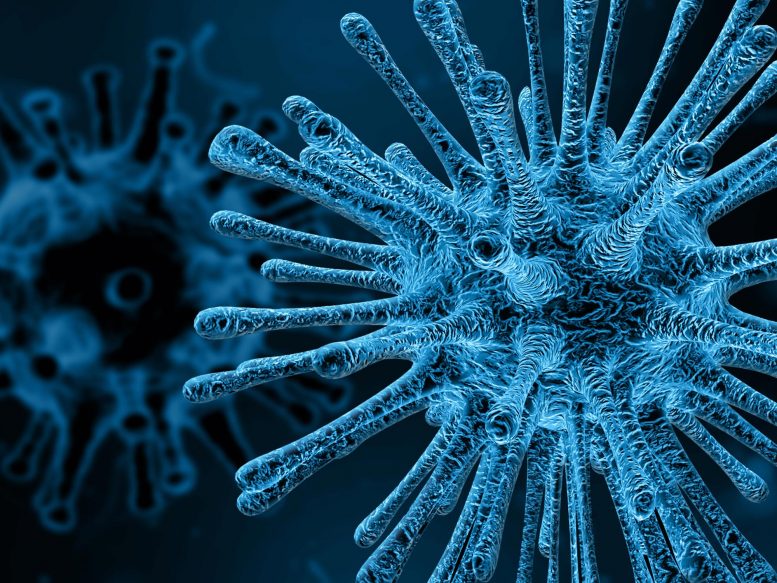
Global warming may lead to the evolution of pathogenic viruses, making them less susceptible to disinfectants like heat, sunshine, and chlorine, which are effective in reducing their ability to spread disease in surface waters.
Enteroviruses and other pathogenic viruses that make their way into surface waters can be inactivated by heat, sunshine and other microbes, thereby reducing their ability to spread disease. But researchers report in ACS’ Environmental Science & Technology that global warming could cause viruses to evolve, rendering them less susceptible to these and other disinfectants, such as chlorine.
Enteroviruses can cause infections as benign as a cold or as dangerous as polio. Found in feces, they are released into the environment from sewage and other sources. Their subsequent survival depends on their ability to withstand the environmental conditions they encounter. Because globalization and climate change are expected to alter those conditions, Anna Carratalà, Tamar Kohn and colleagues wanted to find out how viruses might adapt to such shifts and how this would affect their disinfection resistance.
The team created four different populations of a human enterovirus by incubating samples in lake water in flasks at 50 F or 86 F (10 C or 30 C), with or without simulated sunlight. The researchers then exposed the viruses to heat, simulated sunlight or microbial “grazing” and found that warm-water-adapted viruses were more resistant to heat inactivation than cold-water-adapted ones. Little or no difference was observed among the four strains in terms of their inactivation when exposed to either more simulated sunlight or other microbes. When transplanted to cool water, warm-water-adapted viruses also remained active longer than the cool-water strains. In addition, they withstood chlorine exposure better. In sum, adaptation to warm conditions decreased viral susceptibility to inactivation, so viruses in the tropics or in regions affected by global warming could become tougher to eliminate by chlorination or heating, the researchers say. They also say that this greater hardiness could increase the length of time heat-adapted viruses would be infectious enough to sicken someone who comes in contact with contaminated water.
Reference: “Adaptation of Human Enterovirus to Warm Environments Leads to Resistance against Chlorine Disinfection” by Anna Carratalà, Virginie Bachmann, Timothy R. Julian and Tamar Kohn, 2 September 2020, Environmental Science & Technology.
DOI: 10.1021/acs.est.0c03199
The authors acknowledge funding from the Swiss National Science Foundation.









I am old. I love science. The progress being made while I have been alive is a wonderful dream come true! It makes me feel proud to be part of the human race. Thank you.
Evolve is what viruses do! They also tend to evolve into less virulent strains because if they are too effective at what they do, they kill their hosts before there is time to be transmitted to a different host.
Now the question that should be answered, but wasn’t even raised, “Is there evidence that enteroviruses are evolving, in the manner the researchers speculate, in the tropics?” The tropics have a much higher average temperature than mid-latitudes. The difference is much greater than what is forecast for the global average increase! So much hand-waving and so little cogitation!
“So much hand-waving and so little cogitation!”
You got that right.
If you’re just going to turn into another climate scare ’em and scam ’em site then I’m outta here.
They need to stop with all of the “B.S.!!” The writers need to find some true information to provide instead of the big crock of lies to continually propigate fear to the masses. Get a real job.